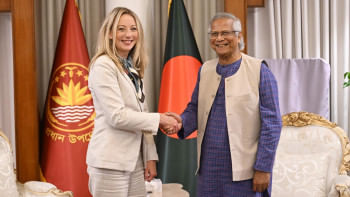Political influence keeps JS bodies ineffective: TIB study

The parliamentary standing committees are unable to ensure accountability and transparency in the ministry activities due to political influence and conflict of interest among the committee members, a TIB study said today.
The other reasons include the watchdogs’ lack of authority to force someone to appear before the bodies or to oblige any authority to submit documents before the committees, added the Transparency International Bangladesh (TIB) study.
Besides, the ministries do not give importance to the committees as there is no legal obligation to implement the JS bodies’ recommendations.
The anti-graft watchdog also said quality, competence, experience and conflict of interest among the lawmakers are not considered during the formation of JS bodies as the chief of the ruling party interferes throughout the process.
The study, titled “Effectiveness of Parliamentary Standing Committees of Bangladesh: Problems and Way Forward”, was released at a press conference at the TIB office in Dhaka.
The study was based on the activities of 11 standing committees on the same number of ministries of the ninth and tenth parliament (as of April, 2015) out of total 50 JS bodies.
The study shows that at least 19 out of 38 lawmakers in these JS bodies have conflict of interest with their respective committees.
There are also allegations of influencing the committee decisions in favour of their personal and business interests, the study says.
Most of the suggestions made by the JS bodies remain unimplemented as it is not mandatory for the respective ministries to implement the recommendations, the TIB said.

 For all latest news, follow The Daily Star's Google News channel.
For all latest news, follow The Daily Star's Google News channel. 



Comments